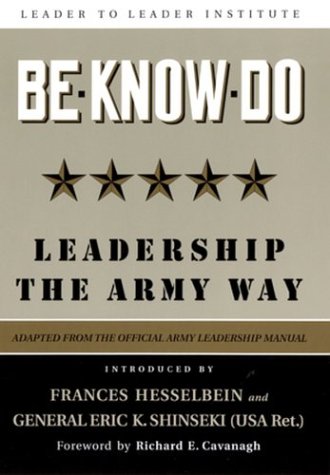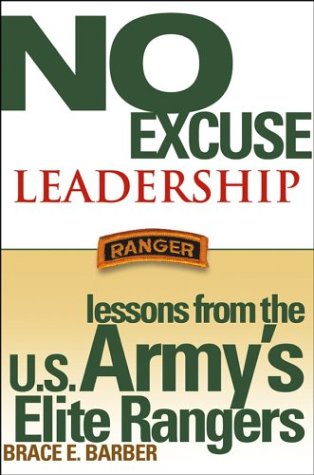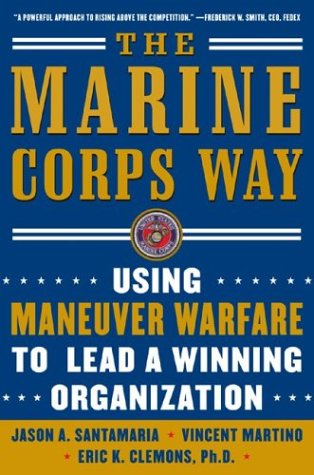 |
||
|
|
Music Reviews and Features
Dion Dimucci
Lester Bangs in "Almost Famous"
History of Warner Brothers Music
Dining
Creolina's
Cajun/Creole
Is
war a good metaphor for business?
|
 |
Here are several recent offerings that attempt to translate the rules and conduct of war into business success.
Be Know Do: Leadership the Army Way. Frances Hesselbein, Eric K. Shinseki. Jossey-Bass. 192 pages.
Adapted from the Army's official leadership manual, this book does a surprisingly good job of explaining its subject in very human terms. One might have expected a more autocratic, authoritarian approach, perhaps, but the logic of the recommended actions is strongly grounded in human behavior, especially needs and motivation. In business, it's often difficult to promote teamwork based on both individual desires and commonality of goals. Generating a productive, disciplined environment based on these values is crucial to success. Though not all of this will translate easily to civilian settings, managers can learn much from the examples of this book.
Brace Barber made it through U.S. Army Ranger School. This is no small feat, as its program is among the military's most arduous. His book recounts this training and how he used it to survive under difficult circumstances. This is not strictly a business volume, but Barber's no-frills style manages to convey powerful lessons on the value of training, preparation, leadership, organization and teamwork that are probably applicable in a variety of settings -- including business.
Though ostensibly a look at how the Marines' values and methods can be used to succeed in the world of business, the authors take a much larger view. They deploy numerous examples of Marine procedures as frames of reference for tales of success and failure in the civilian theater. It's a colorful, entertaining and highly effective way of conveying some powerful lessons along with lots of very interesting military history. The trio of authors (two of whom are ex-Marines) are vivid writers and the result is a text that's a worthwhile addition to one's literary armory.
Business
as War: Battling for Competitive Advantage. Kenneth Allard. John
Wiley & Sons. 243 pages.
 |
Ken Allard was one of those ubiquitous ex-military men that popped up all over the television wasteland a few months back during the early stages of the invasion of Iraq. His background as a former dean of the National Military War College, however, distinguished him from the pack of cheerleaders and play-by-play men who seemed to delight in the action without offering much perspective and precedent. His new book offers both, and like the Marine volume, provides examples and contexts for his business advice. Allard's academic tenure taught him the value of gathering reliable intelligence before initiating action based on emotion, expediency and other often irrelative motivations. And, to be sure, that's an important lesson for leaders of organizations of all sizes.
.
Like business books? Join the club.
©2004 Words on Words, All rights reserved.

